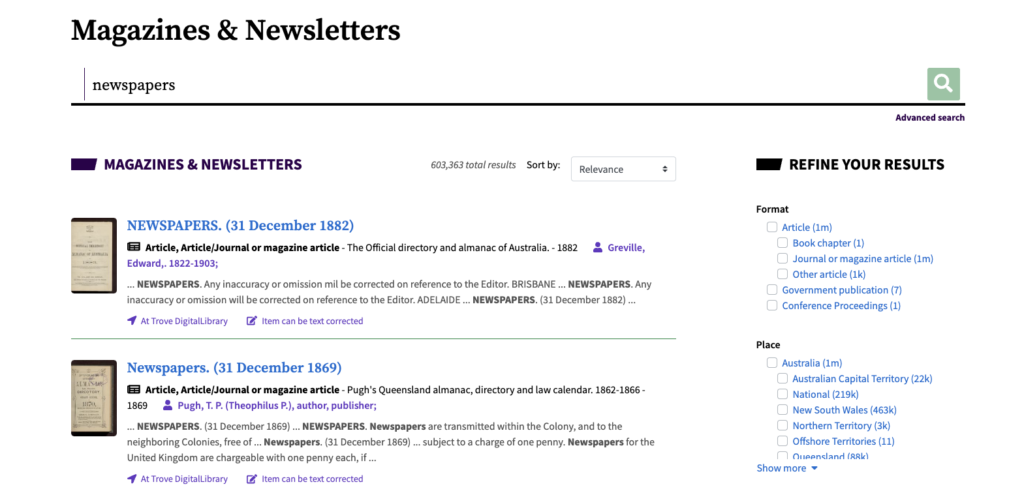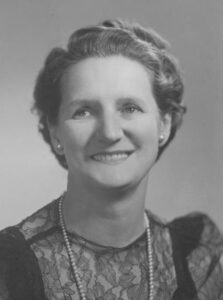Associations and institutions are welcome to apply to become members of the ALCC.
Newspapers of multicultural historical significance, papers of prominent Australian women, and other ‘orphaned’ treasures may never be seen by many Australians due to outdated Copyright rules. The Australian Libraries and Archives Copyright Coalition is calling for urgent changes to the Copyright Act.
Cultural institutions across Australia play a vital role in collecting, preserving, and sharing knowledge and culture. However, within their collections lie a vast amount of creations that are categorised as orphan works. These are works that are still in copyright, but the creator or the legal copyright owners are untraceable or unidentified. Copyright of a work generally lasts for 70 years after the creator has passed away, and is automatically passed down to the beneficiaries of the creator’s estate. Without a clear copyright owner, orphaned works are left in a legal limbo.
Orphaned material ranges from lesser-known items with minimal commercial value to creations by prominent figures in Australian history, both of which can make up a large proportion of collections held by cultural institutions. Unfortunately, current copyright laws don’t address the use of these works in today’s digital age. Justine Heazlewood, ALACC Chairperson said “We strongly support introducing an orphan works scheme that provides clarity and reduced legal risks for users, while safeguarding the interests of copyright owners. We urge the Government to make changes to the law so that everyone can activate the full potential of orphaned materials in our nation’s cultural institutions”.
This series of case studies, compiled by the Australian Libraries and Archives Copyright Coalition, aims to shed light on the range of orphan works held within cultural institutions and provide glimpses of their untold stories.
Case Study: National Library of Australia, Orphaned Treasures
The National Library of Australia (NLA) is the largest library in the country and stands as a cornerstone institution in Australia, dedicated to preserving the country’s rich heritage, fostering research and learning, and ensuring widespread access to its collections for the benefit of present and future generations.
Trove is an NLA initiative and serves as a centralised hub for accessing a wide range of cultural and research materials from institutions across Australia including over 25.5 million pages of Australian digitised newspapers and two million pages of government gazettes, all of which are freely available online. Papers created before 1955 have been made available as they are no longer in copyright (as a general rule). A large proportion of newspapers that were created after 1955 are defunct and out of circulation, with untraceable copyright owners and fall into the category of orphan works. While no longer of commercial interest, newspapers and magazines hold a wealth of Australian history between their pages – waiting for a historian or family researcher to rediscover these stories.

The NLA also has a mandate to collect deposited copies of documentation from any organisation (commercial or public) or any individual producing any type of documentation in multiple copies. Much of this ‘grey literature’ material has been created by state or federal government agencies or organisations for non-commercial reasons and over 30% has been made openly available for use and reuse by the general public. A significant portion of the creators and publishers of this type of material actively support libraries making their works freely accessible online at the time of publication. The issue for the NLA is that much of the grey literature which is deposited at the Library quickly becomes an orphaned work due to the lack of interest from creators in deriving any commercial benefit or even tracking what has happened to the publications they created.
Case Study: National Library of Australia, The Papers of Dame Ivy Wedgwood

Hollywood Studios, Public domain, via Wikimedia Commons
Sitting on a shelf in the National Library of Australia’s (NLA) collection are the papers of Dame Ivy Wedgwood. Dame Ivy was Victoria’s first female Senator and had a significant political career spanning over two decades. As a founding member of the Liberal Party in 1944, her influence was substantial. Despite her prominence and recent passing less than 50 years ago, the beneficiaries of her copyright are unknown due to her lack of children and unclear inheritance.
The NLA has plans to digitise Dame Ivy Wedgwood’s Papers and make them accessible to the public under section 200AB of the Copyright Act 1968 for private research and study purposes. Like many Australian cultural institutions, when relying on s 200AB, the NLA undertakes extensive due diligence to locate a copyright owner of a suspected orphaned work. And while this exception provides legal certainty for the National Library, it does not allow researchers to use this material in publications or presentations. Consequently, historians and academics face a difficult choice: exclude relevant quotes and images or take the risk of using material without explicit copyright permission.
Both of the examples from the NLA, the newspapers held within Trove and the stacks of grey literature lining the shelves, hold little commercial value yet are rich in historical detail of Australian life and culture. A fit for purpose orphan works exception that allows the re-use of non-commercial works and grey literature, is needed in Australia to unlock orphaned material.
